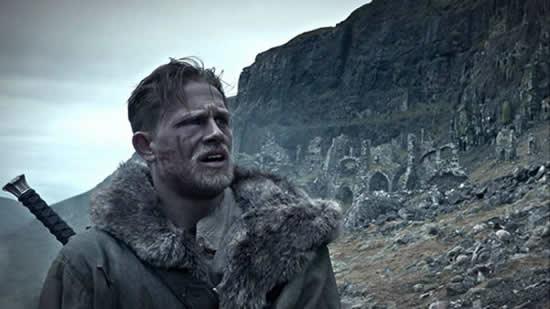
Charlie Hunnam from King Arthur: Legend of the Sword, photo courtesy Warner Bros.
I Like the Wilderness Just Fine, Thanks
Neither Moses nor Arthur had any ambition of saving anyone. When Moses was booted from Egypt, he married a girl named Zipporah, fathered a son and settled down, his previous life all but forgotten. In the movie, Arthur lives as a petty smuggler, protecting his friends, the prostitutes who raised him and his own profits.
But both receive a call to action—Moses in the form of a burning bush, Arthur from a sword in a stone. And even though they have each clearly been chosen for a very special role, both heartily protest.
Moses argues with God himself. They won’t listen to me, he says. I don’t speak very well, he says. “O Lord, please send someone else to do it,” he says in Exodus 4:13. God tells him tough luck: OK God’ll send Moses’ brother, Aaron, along to do the talking, but He’s chosen Moses, and that’s that.
While the Heavenly Father didn’t explicitly choose Arthur to be Britain’s savior in Legend of the Sword, his earthly father certainly did. Arthur’s chosen, and he knows it. But no matter: He rejects his calling repeatedly. When he first draws the sword from its granite sheath and is captured by Vortigern, Arthur assures the king that, if Vortigern lets him go, he’ll simply slip away—never to be heard of again.
Vertigern won’t hear of it. And that’s when the religious undercurrent flips from the Old Testament to the New.













